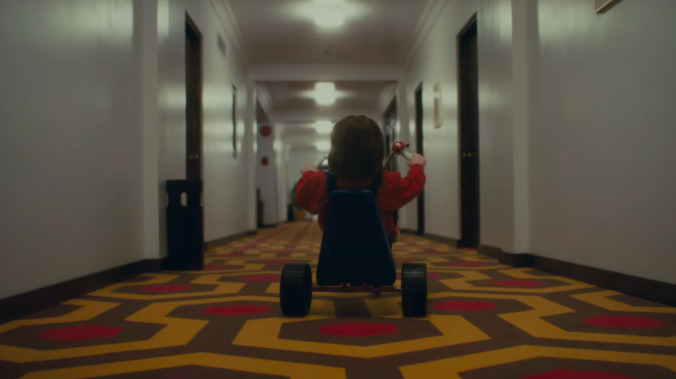Stephen King had to be talked into letting Doctor Sleep share a universe with Kubrick's The Shining

Of the great and storied Hollywood feuds between adapter and adaptee, few are as infamous as Stephen King’s stance on Stanley Kubrick’s version of The Shining. King is on the record—many times over, and as recently as just a few years ago—of frankly hating the director’s widely heralded horror opus, going so far as to produce his own TV movie version of the novel in the late ’90s, just to have a “proper” version of the book on the screen. When he eventually published a sequel to the book in 2013, Doctor Sleep, he went out of his way to ignore every plot change that Kubrick had made, restoring it to some very particular version of “pure”.
Fast forward to today, when the first trailer for Mike Flanagan’s film adaptation of Doctor Sleep hit the internet…filled to the brim with references to, and shots from, Kubrick’s version of the old Overlook Hotel. As we noted in our write-up of the trailer, it’s a bold choice; not just because it invites direct comparisons with one of the most beloved horror movies of all time, but because Flanagan had to run the decision to set the movie in Kubrick’s cinematic universe by King himself.

 Keep scrolling for more great stories from The A.V. Club.
Keep scrolling for more great stories from The A.V. Club.